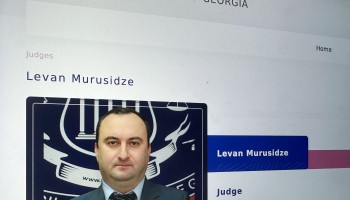Georgia’s parliament has passed the contentious Foreign Agents Registration Act (FARA) in its third and final reading, a move critics say could suppress independent media and civil society groups. The bill passed with 86 votes in favor and no opposition, according to the Georgian Public Broadcaster.
Parliament Speaker Shalva Papuashvili defended the legislation, claiming it closely mirrors the U.S. Foreign Agents Registration Act. However, legal experts and human rights groups argue that the law lacks the legal safeguards of its American counterpart and could be weaponized against government critics.
The law requires individuals and organizations receiving more than 20% of their funding from foreign sources to register as foreign agents. Failure to comply could result in criminal charges, including prison sentences of up to five years.
The parliament also passed amendments to the Criminal Code, making registration applications public and requiring annual financial declarations from registered entities. A key feature is the establishment of monitoring systems to track compliance and identify foreign agents. The law will be enforced by the Anti-Corruption Bureau, an institution seen by critics as under the influence of the ruling Georgian Dream party.
The law’s passage follows growing political repression in Georgia, particularly after mass protests erupted in November 2023 when the government postponed European Union membership talks. Authorities have accused civil society organizations of fueling unrest, and opponents fear the new law will be used to stifle dissent. Many have drawn parallels to similar legislation in Russia, which has been used to target opposition voices.
“This law is American only in name,” said Saba Brachveli, a lawyer with the Tbilisi-based Civil Society Foundation. “It lacks the legal safeguards and nonpartisan enforcement of U.S. law and instead allows for harsh and rapid crackdowns.”
The legislation has been widely condemned by international press freedom organizations. Transparency International Georgia previously warned that the law could threaten the survival of independent media outlets critical of the government.
The bill now heads to President Mikheil Kavelashvili for approval. While the government argues that the law enhances national security and aligns with international norms, opponents say it is a tool to silence political opposition.






